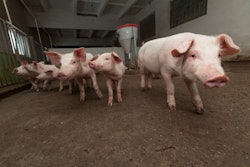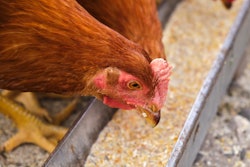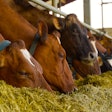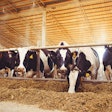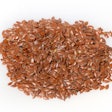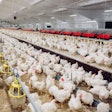
By now, anyone who stays informed about animal agriculture is probably aware of California’s Proposition 12 law.
But for those who may be unfamiliar with the law, it calls for all eggs raised in or sold in California to come from cage-free hens and all pork produced or sold in the state to come from farms that do not use gestation stalls. The law has been long opposed by many people in other states who, if they want to sell their product in California, must comply with Proposition 12.
Lawsuits have been filed, with a common claim that it is unconstitutional for voters or legislators in one state to dictate how farmers produce goods in other states.
That rationale is appearing again, but this time, it is concerning cultivated meat, also known as lab-grown meat. More specifically, it concerns Texas SB 261, which Gov. Greg Abbott has signed into law. SB 261 makes it unlawful to sell cultivated meat in the state, and a violation of said law could mean a fine of up to $25,000 per day and incarceration.
Multiple Texas officials have publicly stated that a major motive in passing the legislation is to protect the Texas animal agriculture industry, and specifically the beef industry.
The Institute for Justice (IJ), filed a lawsuit in Texas, joined by UPSIDE Foods and Wildtype, two cultivated meat companies that have been given approval from the U.S. Department of Agriculture and the U.S. Food and Drug Administration.
Similar legislation has been proposed in other states, but this lawsuit directly challenges the one in Texas.
IJ recently held a press conference, where representatives from IJ, Upside Foods and Wildtype shared their views.
Marco Vasquez Jr., an attorney in IJ’s Texas office, disagrees with the law.
“SB 261 takes away the right of Texans to decide for themselves what to eat. Texas did this for the purpose of protecting an in-state industry from an entirely out-of-state industry. But this is Texas. We don't ban competition. We embrace it,” he said.
UPSIDE Foods Founder Uma Valetti agreed with Vasquez, pointing out that SB 261 bans “the freedom of the meat manufactured in the United States in another state to be sold in Texas.” He said that does a disservice to Texans by limiting their choices.
Nobody directly compared the Texas law and Proposition 12, but you could read between the lines and tell that they were thinking of how it was unconstitutional to ban one type of food produced in one state from entering another – which is exactly what so many people believe Proposition 12 does.
For better or for worse, challenges to Proposition 12 so far have been unsuccessful. I don’t discredit anything that Valetti or Vasquez said, but it seems to be common sense that regardless of how you feel about Proposition 12 or SB 261 – and I would highly suspect that there are people who favor one and oppose another due to views on the affected industries – if challenges to Proposition 12 have gone nowhere, then challenges to SB 261 that use the same rationale should fail too, based simply on the need for consistency in the legal system.




